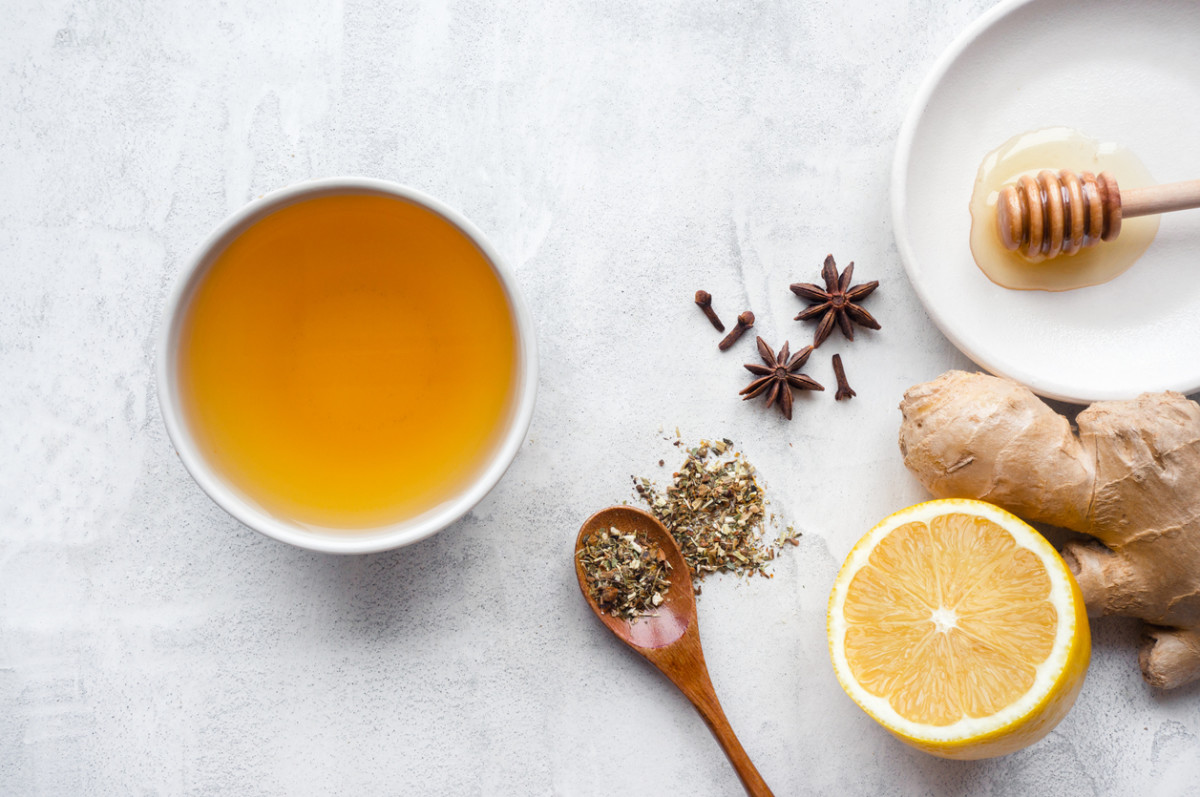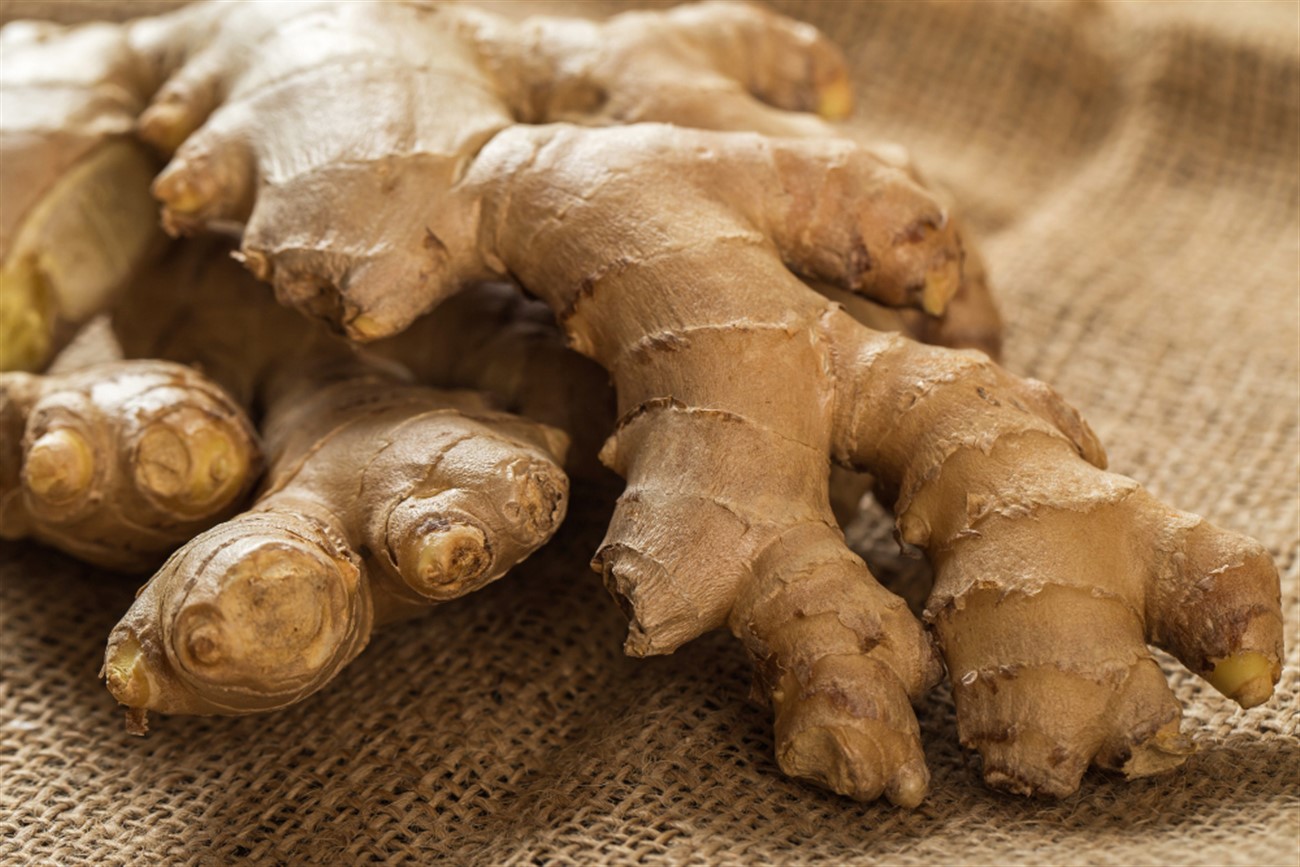
Ginger Tea: Health Benefits and Side Effects
Ginger is a species of herbaceous plant with a spicy flavour belonging to the Zingiberaceae family. Originating from the island of Java (Indonesia) and even from China and India, ginger spread across the European continent through the Crusades. And it was around 1600 that it reached Brazil at the hands of the Portuguese discoverers. Ginger tea is an excellent digestive and anti-inflammatory tonic. Possibly, it is one of the most sought-after natural teas for the auxiliary treatment of colds and flu. Don’t waste any more time and invest in your health. Discover the benefits and side effects of ginger tea!

Known as Gan Jiang (Ginger root in Chinese), ginger is considered by Ayurvedic medicine the universal natural solution for the treatment and prevention of different diseases. In addition to its medicinal use, this tuberous root is consumed in Asian cuisine as a spice in sauces, even infusions and essential oils. It is very founded in Japan, Thailand, Indonesia and China.
Benefits of Ginger Tea
Ginger is the world reference when the objective is to stop the worsening of symptoms caused by stomach problems. For this type of situation, the consumption of ginger tea is known for its anti-inflammatory and digestive powers that act as belching, gas, indisposition, abdominal pain and loss of appetite. This action will stimulate gastric emptying by eliminating toxins that may harm digestive health.
Ginger tea is one of the most recommended teas for daily use because it is rich in anti-inflammatory, antioxidant, antibacterial, analgesic, diuretic and hepatoprotective properties. Hence, one of the substances present in the composition of ginger root is often used in the manufacture of medication with a laxative effect, antioxidants and antiacids.
According to tea lovers, ginger tea should be taken as close as possible to the preparation period, in a cold or hot state, at the same time. However, the consumption of ginger tea is not recommended for all people or even for all stages of life. In determining pathologies, prolonged consumption of ginger tea may be unfavourable to health status. Therefore, it is essential to pay special attention to the type of disease.
In addition to being used for good digestion, ginger tea can fight bad breath, excess weight, abdominal swelling, fever and joint pain. When you drink ginger tea you can feel a slight heat that will make you perspire while promoting the elimination of accumulated liquids. Can be a great ally in the weight loss process. Even promote satiety and body hydration. The stimulation of fat burning will be the responsibility of gingerol, one of the active ingredients in ginger.

Rich in vitamins B6 and C, ginger contains relaxing properties that may contribute to the balance of the nervous system. This contribution is influenced by the action of the constituents of ginger in blood purification that will promote the relaxation of blood vessels. Therefore, ginger tea can be an excellent ally in regulating blood pressure. However, all these benefits are connected to a healthy lifestyle.
In addition to the benefits mentioned, ginger tea may help produce insulin and regulate blood sugar levels (glycemia). Generally speaking, the consumption of ginger tea can contribute to the relief of body discomfort and menstrual cramps and even reduce high cholesterol. It can also help treat infections and inflammations of the respiratory tract. And finally, liver protection is promoted by the digestion of fats.
Side Effects of Ginger Tea
Consumption of ginger tea is not recommended for people suffering from kidney and gallstones. Also, it should be avoided by people taking daily anticoagulant medication and blood pressure. The role of ginger in reducing hypertension may influence the deregulation of the medication’s effect.
Curiosity about Ginger
Ginger contains a substance called gingerol, responsible for the spicy flavour of this tuberous root, rich in antioxidant, anti-inflammatory and antimicrobial properties. The therapeutic properties of ginger are due to the joint action of several substances, especially those present in ginger essential oil.
Ginger can increase caloric expenditure by more than 10%.
Nutritional Facts
Note that the nutritional value table below considers 100g of ginger, but use in a recipe may not reach 2g:
Main:
- Water (g) 78.89
- Energy value (kcal) 80
- Protein (g) 1.82
- Total fat (g) 0.75
- Carbohydrates (g) 17.77
- Fibre (g) 2
- Monosaccharides (g) 1.7
Minerals:
- Calcium (mg) 16
- Iron (mg) 0.6
- Magnesium (mg) 43
- Phosphorus (mg) 34
- Potassium (mg) 415
- Sodium (mg) 13
- Zinc (mg) 0.34
Vitamins:
- Vitamin C (mg) 5
- Thiamine (mg) 0.025
- Riboflavin (mg) 0.034
- Niacin (mg) 0.75
- Vitamin B6 (mg) 0.16
- Folic Acid (µg) 11
- Vitamin E (alpha-tocopherol) (mg) 0.26
- Vitamin K (µg) 0.1
Lipids:
- Saturated fats (g) 0.203
- Monounsaturated fats (g) 0.154
Try the delicious ginger tea with lemon and honey.
Tell us your experience!








Sorry, the comment form is closed at this time.